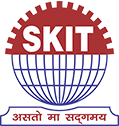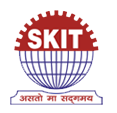CLUB NAME: LINUX CLUB
FACULTY COORDINATOR :
1.Manoj Raman +919530180296
2.Praveen Yadav +918696934596
STUDENT COORDINATOR :
1.Harshit Garg 22ESKIT057 3rd Year IT +916375593279
2.Harsh Jain 22ESKIT053 3rd Year IT +918949731854
3.Aryan Singh Rathore 22ESKIT043 3rd Year CSE +919414426010
Objectives of Club:
1. Enhancing Technical Skills
· Practical Experience: Linux is widely used in industry and academia, and hands-on experience with it can significantly enhance students' technical skills. The club can provide opportunities to work with real-world systems and tools.
· System Administration Skills: Students can learn about system administration, including managing servers, security, and networking, which are crucial skills in the tech industry.
2. Promoting Open-Source Philosophy
· Understanding Open-Source: The club can educate students about the open-source philosophy, encouraging the use and contribution to open-source software. This fosters a collaborative and innovative mindset. · Community Involvement: Students can participate in and contribute to open-source projects, gaining recognition and experience while supporting the wider tech community.
3. Career Development
· In-Demand Skills: Knowledge of Linux and open-source technologies is highly valued by employers, especially in fields like software development, system administration, and cybersecurity.
· Certification Preparation: The club can help students prepare for Linux certifications (e.g., CompTIA Linux+, LPIC), which can enhance their resumes and job prospects.
4. Educational Enrichment
· Supplementing Coursework: The club can offer additional learning opportunities that complement and enhance the college’s curriculum, such as workshops and guest lectures.
· Practical Application: Students can apply what they learn in their coursework to real- world scenarios, bridging the gap between theoretical knowledge and practical skills.
5. Fostering Collaboration and Innovation
· Team Projects: The club can facilitate collaborative projects, encouraging teamwork and problem-solving among members. This can lead to innovative solutions and creative problem-solving.
· Peer Learning: Members can learn from each other, share knowledge, and help each other with technical challenges, creating a supportive learning environment.
6. Building a Tech Community
· Networking Opportunities: The club can connect students with industry professionals, alumni, and peers who share similar interests, expanding their professional network.
· Campus Engagement: By hosting events and workshops, the club can raise awareness of Linux and open-source technologies on campus, contributing to a more tech-savvy student body.
7. Supporting Career Readiness
· Internship and Job Opportunities: Active involvement in the club can open doors to internships and job opportunities through connections and experiences gained.
· Soft Skills Development: In addition to technical skills, members can develop soft skills such as communication, leadership, and project management through organizing events and collaborating on projects.
8. Encouraging Innovation and Research
· Research Projects: The club can support research projects related to Linux and open- source technologies, providing students with opportunities to explore new ideas and contribute to advancements in the field.
· Hackathons and Competitions: Hosting or participating in hackathons and coding competitions can inspire innovation and creativity among members.
9. Cost-Effective Computing
· Affordability: Linux is free and open-source, making it a cost-effective alternative to proprietary software. The club can advocate for and demonstrate the benefits of using Linux in academic and personal projects.
10. Institutional Benefits
· Institutional Reputation: A successful Linux Club can enhance the college's reputation as a forward-thinking institution that supports emerging technologies and prepares students for the future.
· Resource Utilization: The club can make effective use of existing resources (e.g., computer labs) by providing additional learning opportunities and practical applications.
Activities conducted:
| 13/11/2024 | Hands-on-Practice on Linux |
| 20/11/2024 | Quiz on Linux |




